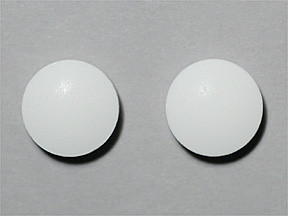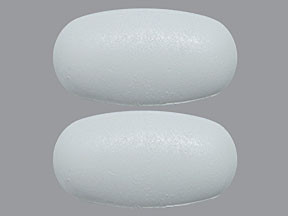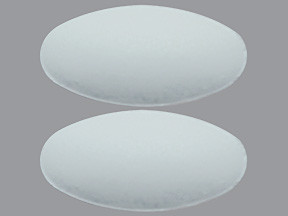POTASSIUM SUPPLEMENT - ORAL
PHONETIC PRONUNCIATION: (poe-TAS-ee-um)
GENERIC NAME(S): potassium
Uses
USES: This medication is a mineral supplement used to treat or prevent low amounts of potassium in the blood. A normal level of potassium in the blood is important. Potassium helps your cells, kidneys, heart, muscles, and nerves work properly. Most people get enough potassium by eating a well-balanced diet. Some conditions that can lower your body's potassium level include severe prolonged diarrhea and vomiting, hormone problems such as hyperaldosteronism, or treatment with "water pills"/diuretics.
How to use POTASSIUM SUPPLEMENT - ORAL
HOW TO USE: If you are taking the over-the-counter product to self-treat, read all directions on the product package before taking this medication. If you have any questions, consult your pharmacist. If your doctor has prescribed this medication, take it as directed. To prevent stomach upset, take each dose with a meal and a full glass of water (8 ounces/240 milliliters) unless your doctor directs you otherwise. Do not lie down for at least 10 minutes after taking this medication. Do not crush, chew, or suck extended-release capsules or tablets. Doing so can release all of the drug at once, increasing the risk of side effects. Also, do not split extended-release tablets unless they have a score line and your doctor or pharmacist tells you to do so. Swallow the whole or split tablet without crushing or chewing. Take this medication by mouth as directed by your doctor or the product package, usually once daily. Take this medication regularly to get the most benefit from it. To help you remember, take it at the same time each day. The dosage is based on your medical condition and response to treatment. Do not increase your dose or take it more often than directed. Tell your doctor if you think you may have a serious medical problem or if you have symptoms of low potassium in the blood (such as irregular heartbeat, muscle weakness/cramps).
Side Effects
Precautions
Interactions
Overdose
Images
Reviews
Faq for POTASSIUM SUPPLEMENT - ORAL
Potassium supplement is an oral medication that contains potassium, an essential mineral for the proper functioning of the body.
Potassium is important for maintaining fluid and electrolyte balance, muscle contractions, nerve function, and heart rhythm.
Potassium supplements are commonly prescribed for individuals with potassium deficiency caused by certain medical conditions like kidney disease, gastrointestinal disorders, or prolonged use of certain medications like diuretics.
Common side effects of potassium supplement include stomach upset, nausea, diarrhea, and a mild tingling sensation. In rare cases, it may lead to more serious side effects like high levels of potassium in the blood (hyperkalemia), irregular heartbeat, or allergic reactions.
It is important to follow the dosage instructions provided by your healthcare provider. Usually, potassium supplements are taken with a glass of water after meals to minimize stomach upset. Avoid taking it on an empty stomach.
It is generally advised to avoid consuming large amounts of potassium-rich foods like bananas, oranges, spinach, tomatoes, or salt substitutes while taking potassium supplements. Consult your healthcare provider for specific dietary advice.
Potassium supplements may interact with certain medications, such as certain blood pressure medications (ACE inhibitors), diuretics, or nonsteroidal anti-inflammatory drugs (NSAIDs). Inform your healthcare provider about all medications you are currently taking to avoid potential interactions.
The effects of potassium supplements may vary depending on the individual's potassium levels and the underlying condition. It is important to follow your healthcare provider's instructions and regularly monitor your potassium levels to ensure proper supplementation.
In some cases, increasing potassium intake through a balanced diet may be sufficient to meet your potassium needs. Ensure you have enough potassium-rich foods in your diet, or your healthcare provider may recommend alternative treatments if necessary.
Potassium supplement oral is a medication that provides extra potassium to the body. It is used to treat or prevent low potassium levels, also known as hypokalemia.
You should take potassium supplement oral exactly as prescribed by your doctor. It is usually recommended to take it with a full glass of water or with food to avoid stomach upset. Do not crush, chew, or break extended-release tablets, as this can release too much potassium at once.
Common side effects of potassium supplement oral include nausea, vomiting, diarrhea, stomach pain, and a mild tingling or burning sensation in the hands or feet. Serious side effects such as confusion, irregular heartbeat, or muscle weakness should be reported to a healthcare professional immediately.
You should inform your doctor about all the medications you are taking, as certain drugs can interact with potassium supplement oral. This includes ACE inhibitors, potassium-sparing diuretics, and nonsteroidal anti-inflammatory drugs (NSAIDs). Your doctor will adjust the dosage or suggest alternative medications if needed.
The time it takes for potassium supplement oral to work varies depending on the individual and their specific condition. It is important to follow the dosage instructions provided by your doctor and to continue taking the medication as prescribed.
If you miss a dose, take it as soon as you remember. However, if it is almost time for your next dose, skip the missed dose and continue with your regular dosing schedule. Do not take a double dose to make up for a missed one.
It is important to follow a balanced diet while taking potassium supplement oral. However, it is advisable to avoid consuming large amounts of potassium-rich foods such as bananas, oranges, tomatoes, and potatoes without consulting with your doctor first.
Taking too much potassium supplement oral can lead to high potassium levels in the blood, known as hyperkalemia. This can be dangerous and potentially life-threatening. It is crucial to follow the dosage instructions provided by your doctor and not exceed the recommended amount.
Potassium supplement oral should be stored at room temperature, away from heat, moisture, and light. Keep it out of the reach of children and dispose of any expired or unused medication properly.
Disclaimer
IMPORTANT: HOW TO USE THIS INFORMATION: This is a summary and does NOT have all possible information about this product. This information does not assure that this product is safe, effective, or appropriate for you. This information is not individual medical advice and does not substitute for the advice of your health care professional. Always ask your health care professional for complete information about this product and your specific health needs.







No Reviews Yet